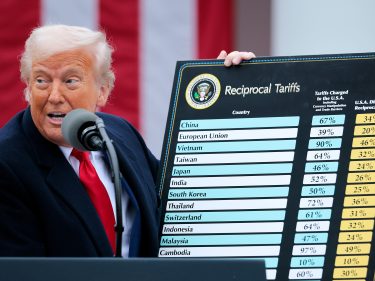Europe’s new anti-money laundering watchdog will scrutinise crypto from Frankfurt
The new illicit finance supervisor may directly supervise significant crypto firms operating in Europe.
The crypto industry in Europe has a new steward.
Frankfurt, Germany’s finance centre and home to European Central Bank, will host a new agency to supervise compliance to anti-money laundering regulations, lawmakers and ministers agreed on Thursday evening.
The European Union is establishing a new Anti-Money Laundering Authority, or AMLA, to crack down on illicit finance across the 27-nation bloc.
The watchdog plans to oversee credit and financial institutions that operate in more than six EU countries. After it hones its criteria in 2025, the AMLA may cover cross-border activity and products offered and the risk associated with customers.
That means that some large crypto asset service providers may be subject to direct supervision.
Complying with EU rules
These firms or institutions will need to monitor and make sure their anti-money laundering and anti-terrorism financing practices comply with EU rules.
Smaller crypto firms would be supervised by domestic financial intelligence units.
From 2026, the AMLA will oversee a collection of 40 financial institutions with the highest risk profiles. These firms will help fund 75% of the watchdog’s operations.
But first, the AMLA will need to win approval in a final vote from the European Parliament and approval from the Council of the EU.
Attracting business
As the heart of German finance, Frankfurt has long been preoccupied with traditional banking and business. It is Berlin to the east that has nurtured a dynamic tech startup scene.
“Although we don’t see an actual base of crypto businesses in Frankfurt, it will be interesting to see if the announcement of this location draws some businesses to the country,” Isabella Chase, senior policy advisor at blockchain intelligence firm TRM Labs, told DL News.
Nine cities competed for the bid to accommodate the new dirty money supervisor that will enforce Europe’s anti-money laundering rulebook, including Paris, Dublin and Riga.
These European metropolises hoped that hosting the watchdog could attract investment from financial institutions, and burnish their prestige.
How strict the AMLA will be on crypto will depend on its leadership, Chase said. If the AMLA chiefs are innovative and assess crypto on its data-based risk factor, “that will define success,” she said.
Chase is optimistic that the new regulator could be an “opportunity for dialogue” for the crypto industry.
Frankfurt’s financial fight
For Chase, the selection of Frankfurt is logical. Germany has recently vamped up its efforts against financial crime through legislation.
Last year, Germany’s financial intelligence unit appointed a new chief to spearhead the fresh fight against financial crime.
And from 2020 to 2022, Germany led the presidency of the Financial Action Task Force, an international body that shapes worldwide policies on money laundering and terror finance.
“A combination of a strong financial institution base, its own period of reform and recent success at running a somewhat analogous institution means that Frankfurt makes a lot of sense,” Chase said.
Have a tip about crypto in Europe? Contact the author at inbar@dlnews.com.


